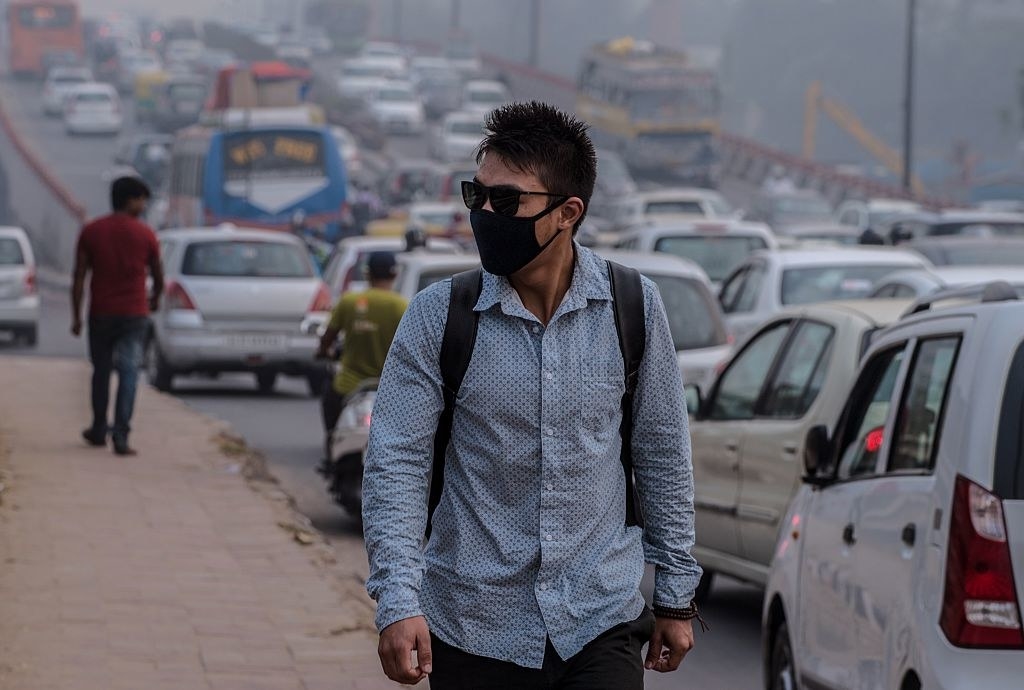In October, the Supreme Court banned the sale of firecrackers in Delhi, which has been declared as one of the most polluted cities in the world, during Diwali. . Though reports said air quality was better than last year, pollution levels in the capital hit 18 times the healthy limit a night after the festival, as many dodged the ban.
The Indian Medical Association listed seven measures to stay safe and sent it to the Delhi CM Arvind Kejriwal, calling the situation a medical emergency. Since those who go out for runs are also affected, it was suggested that the Delhi Half Marathon be cancelled. Here are a few reasons why that is a perfectly legimitate ask of the government:
1. The Air Quality Index (AQI) in Delhi has constantly ranged from "very unhealthy" to "hazardous" levels since the last few days, with AQI crossing the 300 danger mark at many places.

2. The negative effects of pollution on the body are overcome by running, but not neutralized by it. Good running is best when you’re breathing clean air.

3. The intake of air pollution increases considerably when we exercise, because we take deeper and more frequent breaths.
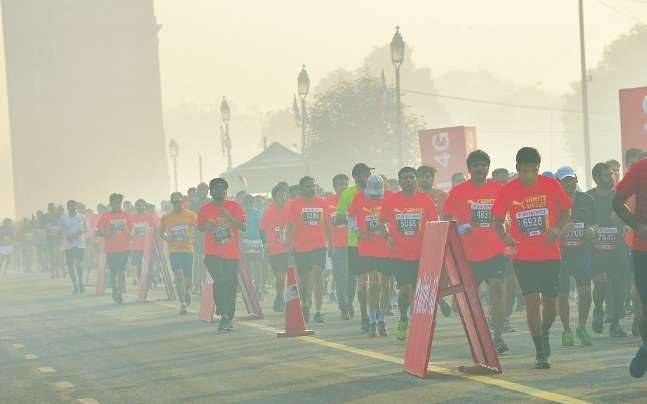
4. Air pollution not only affects the performance of the runner, the dangerously high pollution levels may have disastrous health consequences such as high BP, and increased risk of acute cardiovascular events such as heart attacks and strokes.
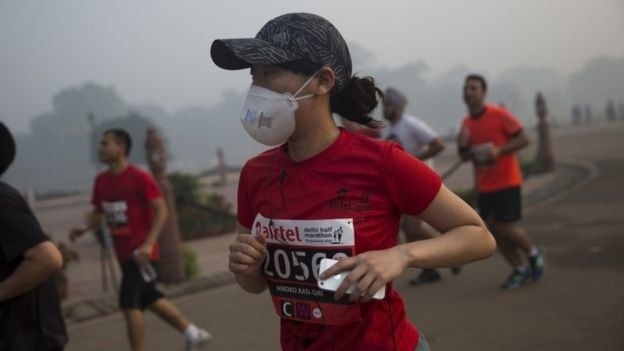
5. There is scientific evidence to show that poor air quality can aggravate asthma or other existing lung diseases such as chronic obstructive pulmonary disease (COPD).
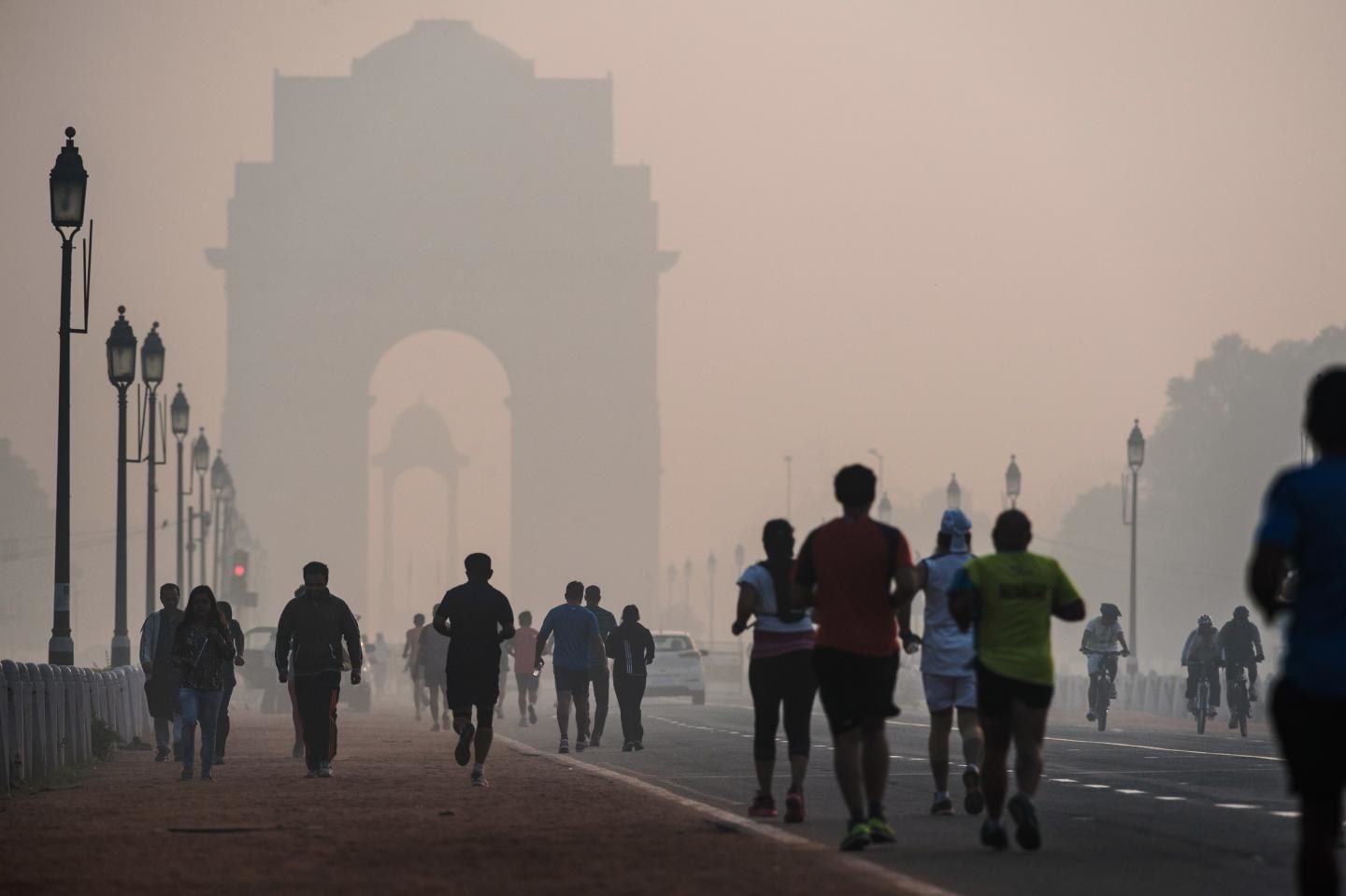
6. Regular exercise in highly polluted air might not result in the same neurological benefits that are observed while exercising in non-polluted air.
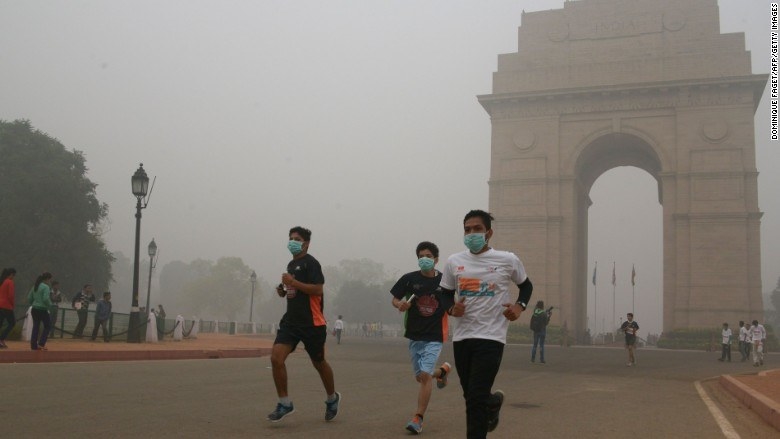
7. Athletes who train in cities have been found to have higher levels of lead in their blood compared to runners who train in areas with cleaner air.
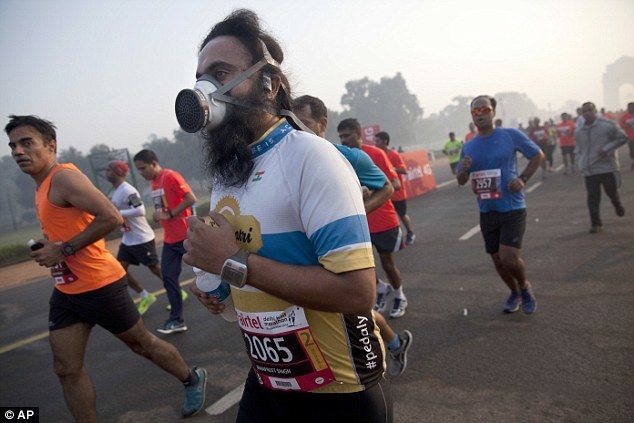
8. Exposure to particulate matter can lead to respiratory problems ranging from changes in lung function to premature mortality.
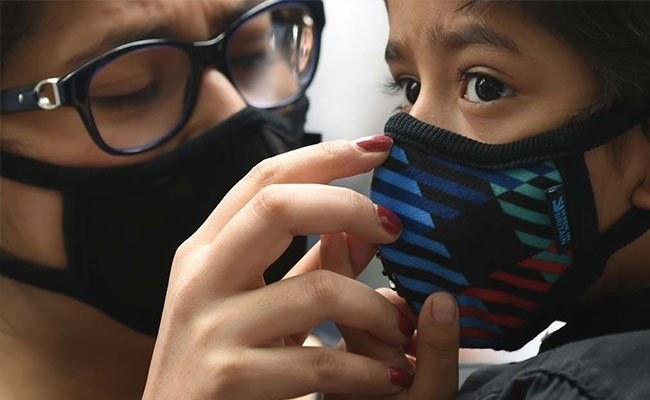
9. While ozone and carbon monoxide produce uncomfortable performance-reducing effects, they don’t remain in the body for more than a few hours after exercise. But heavy metals and carcinogens, cannot be metabolised by the liver and do remain in the body.
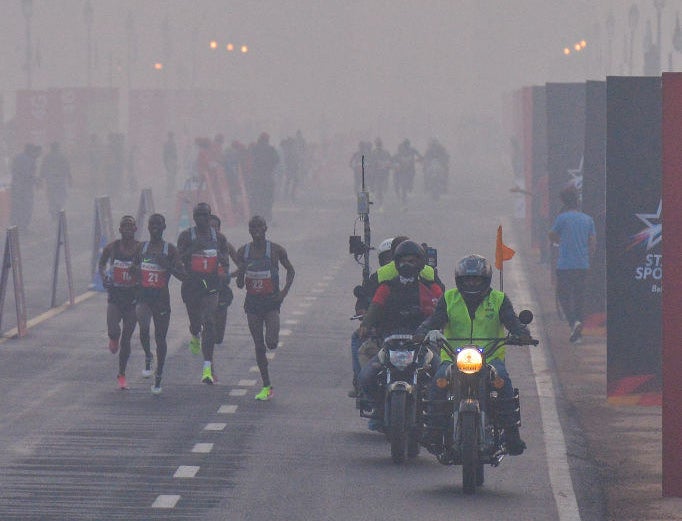
10. And the effects of particulate matter (matter suspended in the atmosphere) can be chronic, leading to more frequent severe respiratory symptoms for asthmatics and non-asthmatics alike.
